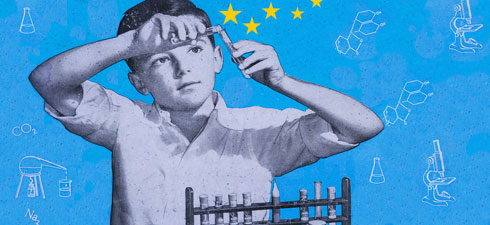Will its culture and traditions be the mainstays of Europe? Or will the driving force behind Europe be its ability to come up with new forms of governance and integration – and new ways of dealing with the rest of the world. Does Europe’s future hinge on its museums, orchestras and restaurants or on its factories, laboratories and universities? This is, of course, a caricature of Europe’s dilemmas and possibilities. Europe will always be a cultural power and retain its scientific, industrial and military prowess.
But like any caricature, the museum/laboratory dichotomy points up two contrasting prospects for the future of Europe. “Laboratory” here does not chiefly denote Europe’s scientific capabilities, but to its ability to experiment with new forms of governance: new institutions, public policies and rules of conduct.
Lisbon increases transparency
The Irish have actually just voted on that. The first time they were asked, last year, they said no. Now they have said yes. But what have they said yes to? To Europe having a full-time leader, instead of depending, as it does now, on a round-robin presidency that rotates every six months among its 27 member countries’ heads of state. The new president will remain in office for two and a half years, and may be re-elected for another term. Felipe González and Tony Blair are strong candidates for the first to hold this office.
The Irish voted for a number of other things as well: for a fairer voting system in collective decision-making, for every member country to have a representative in the European Commission, for improvements in the workings of the European Parliament, for Europe’s representative to the rest of the world to have a clearer mandate and more power, and various other improvements along these lines, all of which will help the European Union operate more effectively and transparently. Most of them are tedious nuts-and-bolts bureaucratic changes that are hard to understand – and to explain. That is why the Irish naysayers opted to base their campaign on the argument that a “Yes” meant voting to lower the minimum wage, legalise abortion and send Irish troops to Afghanistan, among other curses concealed in the small print of the Lisbon Treaty. But the electorate did not buy that – and voted overwhelmingly in favour of the treaty.
2040, Europe only 4% of world population
This vote has less to do with enthusiasm for the proposed institutional changes than with the conviction that Ireland is better off aligning itself with Europe and that Europe is better off becoming more deeply and effectively integrated. But the Irish referendum is not the end of the adoption process: Poland still has to ratify the treaty and the dilatory tactics of Czech president Václav Klaus have yet to be thwarted. But if it is adopted, Europe will have a new institutional setup in 2010. To be sure, these innovations are not the political equivalent of discovering a cure for cancer or a magic formula to solve the serious structural problems facing Europe. But they will be a decisive step in helping Europe face what lies ahead. And what lies ahead is unprecedented.
According to estimates by historian and Nobel laureate in economics Robert Fogel, in the year 2000 6% of the world population lived in Europe, whose economy made up 20% of the world economy, whilst 38% of the world lived in China and India, whose economies represented 16% of the total. Fogel forecasts that in 2040, Europe will hold only 4% of the earth’s population and account for a paltry 5% of the world economy. On the other hand, 34% of the human race will dwell in China and India, whose economies will have swelled to 52% of global economic activity. From this perspective, it is absolutely imperative that Europe present a united, effective and innovative front to the rest of the world. That should be the least of its problems.
REFORMS
The Byzantium syndrome
“For 10 years Europe has been beating around the bush, debating rules, procedures and institutions,” instead of “devoting that energy to harmonising tax systems, building a common energy market, fighting climate change, boosting competitiveness and overseeing the financial markets,” comments Xavier Vidal-Folch in El País.
The right of veto Ireland used to get the Treaty of Lisbon approved is liable to turn the EU into a new Byzantium. Under the unanimity rule, the EU will be subject to blackmail by its members, culminating in an “apotheosis of paralysis”. According to Vidal-Folch, the only remedy is to “hit back hard” with political punch. Whilst “the Byzantines entertained themselves debating the gender of angels, the Ottomans devoured them in the twinkling of an eye.” Europe’s economic sway is in jeopardy: “Blackmail may be free of charge for the perpetrator, but the EU will pick up the tab in terms of the costs of lost opportunity, international prestige and market credibility."
Was this article useful? If so we are delighted!
It is freely available because we believe that the right to free and independent information is essential for democracy. But this right is not guaranteed forever, and independence comes at a cost. We need your support in order to continue publishing independent, multilingual news for all Europeans.
Discover our subscription offers and their exclusive benefits and become a member of our community now!












